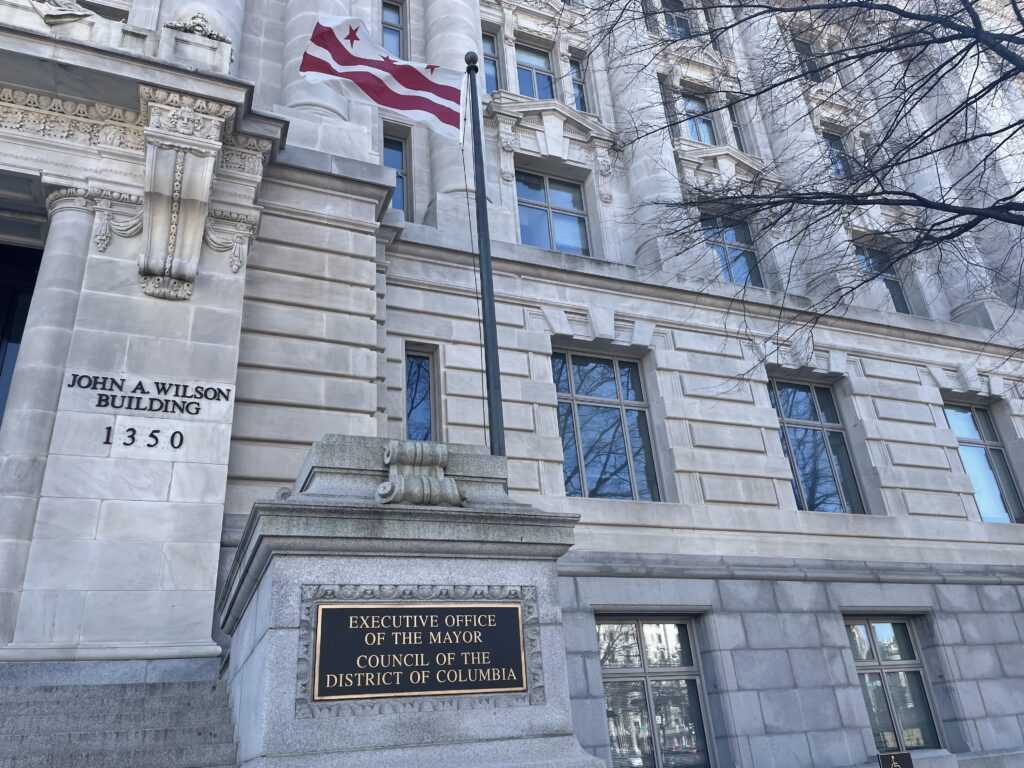Four D.C. councilmembers introduced a bill on Feb. 5 that would expand the scope of involuntary commitment in the District and make it easier for people to be involuntarily committed.
Mental health advocates expressed concern the new legislation could result in more visibly vulnerable communities, including people experiencing homelessness, being treated against their will. Involuntary commitment, also known as involuntary hospitalization or civil commitment, is a legal process that requires an individual to receive mental health treatment if they are deemed to be a danger to themselves or others by a judge.
While the District does not publicize local data on the number of individuals involuntarily committed, the Office of the Attorney General reported that 2,930 emergency petitions to commit residents were filed in 2023.
The Enhancing Mental Health Crisis Support and Hospitalization Amendment Act of 2024 was introduced by the chair of the Committee on Health, Christina Henderson, as well as Councilmembers Brianne Nadeau, Anita Bonds and Zachary Parker.
The bill proposes expanding the pool of health care professionals who can initiate the involuntary commitment process to include psychiatric-mental health nurse practitioners. It would also extend the timeframe that someone can be detained from seven to 15 days, potentially against their will, for emergency observation and diagnosis in a hospital or jail while mental health professionals determine if their behavior meets the standard for imminent harm to themselves or another. In D.C., drug addiction and alcoholism do not qualify as mental illnesses, according to the D.C. Courts.
Lewis Bossing, the senior staff attorney at the Bazelon Center for Mental Health Law, argued many of the provisions in Henderson’s legislation would be unlikely to support a person’s autonomy or improve the quality of their treatment. He criticized the provisions permitting hearsay in court hearings and those prioritizing virtual hearings, which he says are part of a “wishlist for people administering the system.” In a press release about the bill, Henderson’s office argued those same measures would make the challenge process fairer for people being committed against their will.
Bossing also opposes a provision that would allow the city to issue warrants for non-compliance with treatment plans or court appearances, which he argued would criminalize people’s failure to comply with a treatment plan they did not consent to or help create.
“There’s no evidence that forcing people to be treated improves their outcomes or makes people more likely to be engaged in their treatment,” Bossing said. Most recent studies have shown that involuntary outpatient treatment does not provide substantial benefits and may increase mental health deterioration.
“The Enhancing Mental Health Crisis Support and Hospitalization Amendment Act of 2024 aims to strengthen the District’s mental health processes for individuals in need of emergency stabilization and care,” Henderson wrote in a statement to Street Sense. “In no way are these processes meant to be used as anything other than a temporary entrance to a hospital or psychiatric facility for the purpose of mental health assessment and treatment.”
Involuntary commitment intersects frequently with states’ policy solutions to address homelessness, especially in the last two years. For instance, in Portland, where Point-in-Time Count data shows a record-high increase in homelessness in 2023, some politicians have advocated for more lenient civil commitment laws to allow doctors to increase the number of individuals they commit. In the District, 28% of adults experiencing homelessness surveyed in the 2023 Point-in-Time Count self-reported a mental illness.
“Here in the District, we are seeing cases of what happens when individuals experiencing mental health crisis do not receive care,” Henderson wrote in a statement. “This aims forth to maintain an overall well-being in our community by keeping residents safe from themselves and others.”
But while officials argue the legislation will support public health and safety efforts, Bossing and other advocates view expanded civil commitment as a violation of civil liberties that often impacts vulnerable communities. In D.C., where individuals experiencing homelessness are more likely to be Black than anywhere else in America, organizers are particularly worried about the disproportionate impact of more expansive involuntary commitment laws.
“People who have significant mental health support needs often experience some level of housing instability,” Bossing said. “We see a lot of efforts at the state level, in these ways or other ways, [to use] involuntary commitment as a means to generally transport people from the street to hospitals or to jail to await assessment.”
Without an expansion of housing services, mental health resources and other social services, Bossing believes involuntary commitment is unlikely to help people.




